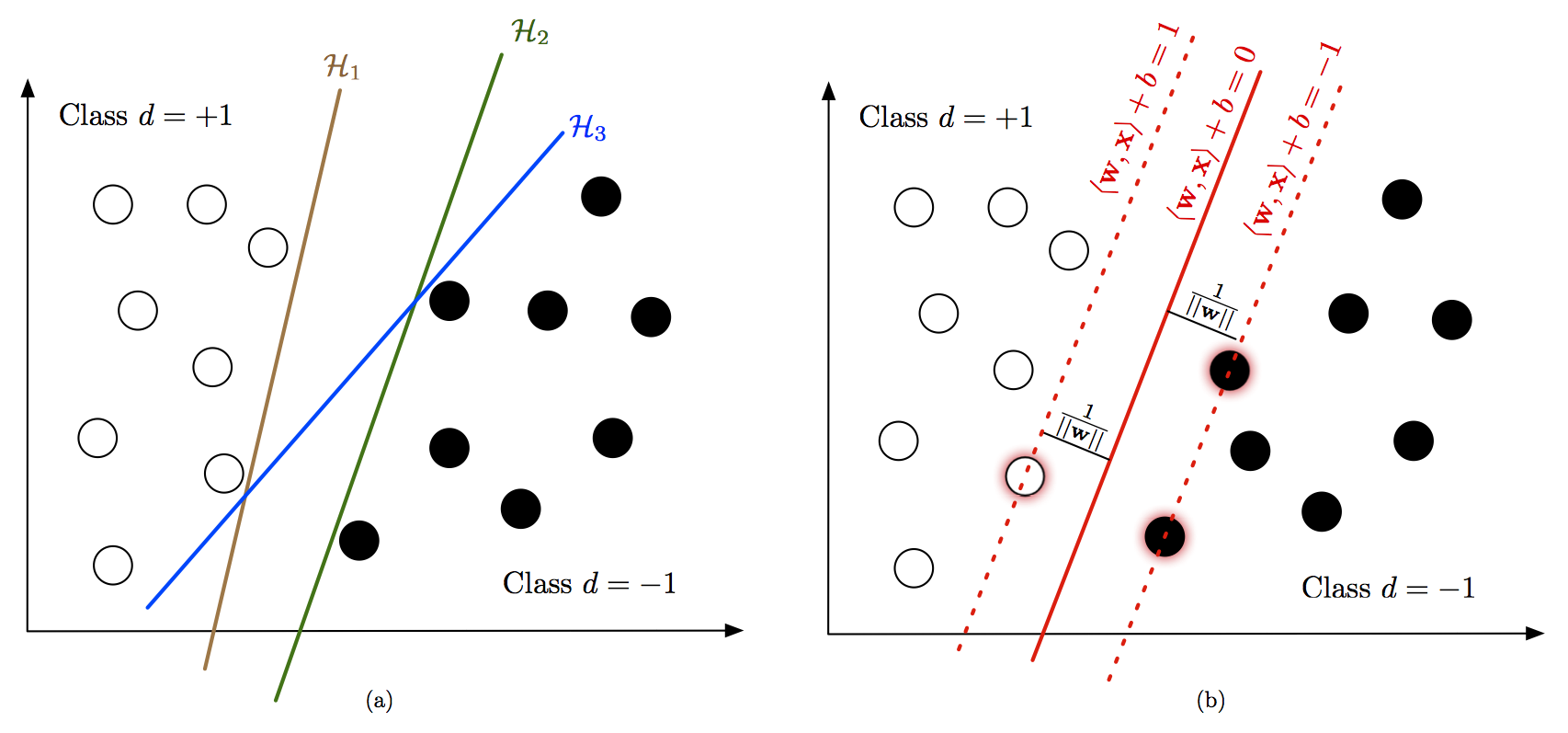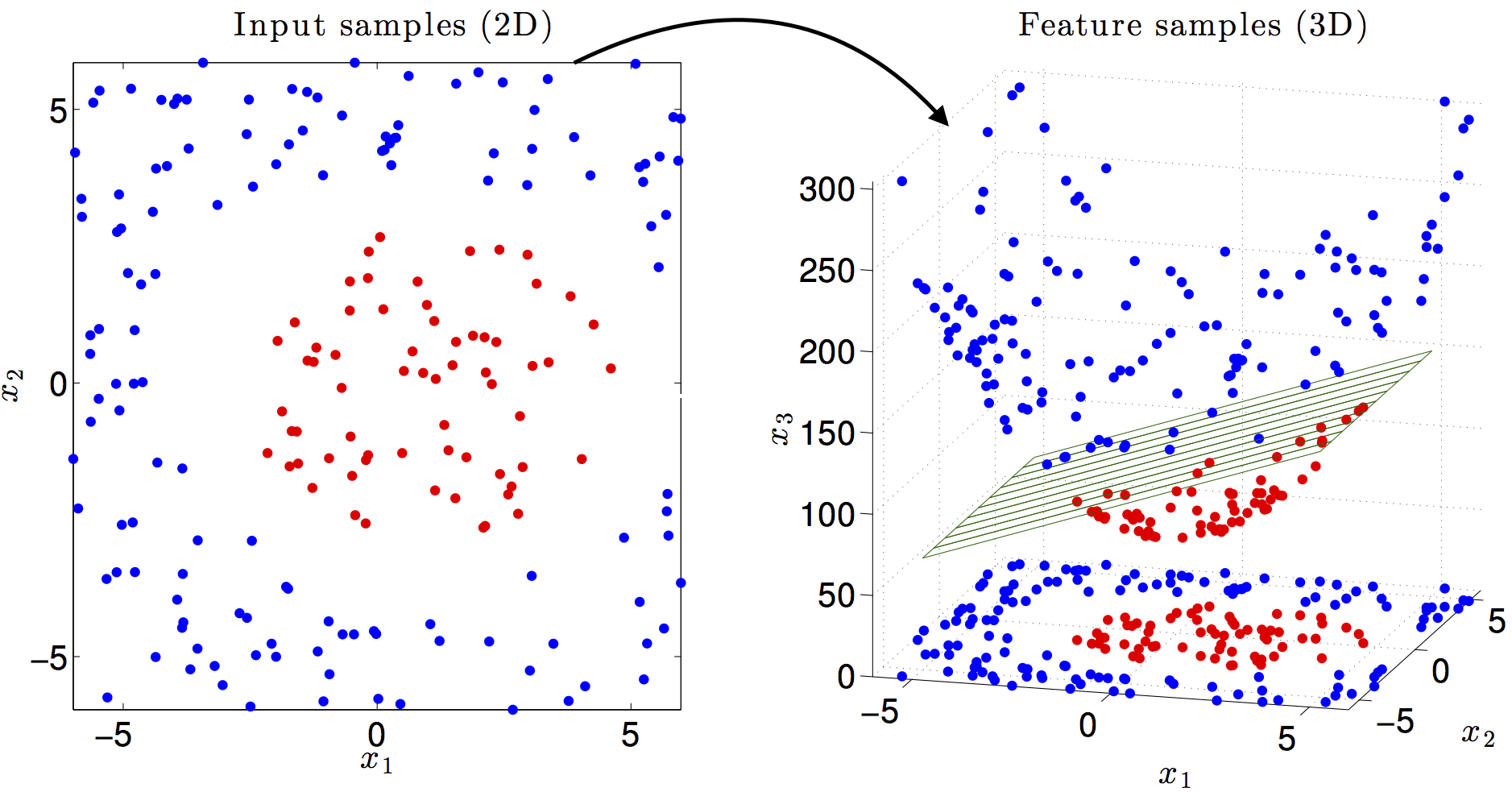Initializing Kernel Adaptive Filters via Probabilistic Inference
Iván Castro, Cristóbal Silva and Felipe Tobar
IEEE-DSP XII August 2017



Overview
- Non linear time series prediction through Kernel Adaptive Filters (KAFs)
- Probabilistic framework for KAF parameters:
- Determine initial conditions
- Construct a fully adaptive parameter-wise KAF
- Prior distributions over parameters:
- Dictionary elements
- Filter weights
- Sparsity focus in parameter estimation
- Non linearity of parameter search is overcome through MCMC optimization
- Validation over synthetic and real world data outperforms standard KAF
Why is non-linear modeling useful?


Linearly distributed data
- Well studied problems
- It exists a tremendous variety of tools for different learning topics
Non linearly distributed data
- The problem arises: should we develop new tools, or tinker the existing ones?
- For practical purposes, is easier to adjust the data to the existing tools
- Therefore, feature or space transformations are the answer
Linear and non-linear estimation
KAFs and PI in a nutshell
Probabilistic Model for KAFs
Probabilistic Model
$$p(Y) = \prod_{i=d}^{N} \frac{1}{2\pi\sigma_{\epsilon}^2} \exp \left( \frac{\left(y - {\alpha}^{\texttt{T}} K_{\sigma_k}\left(x_i, \mathcal{D}\right)\right)^2}{2\sigma_{\epsilon}^2} \right)$$
Model Likelihood
Weights prior
$$p(\alpha) = \frac{1}{\sqrt{2\pi l_{\alpha}^2}} \exp \left( - \frac{\left\| \alpha \right\|^2}{2 l_{\alpha}^2} \right) $$
Sparsity Inducing Prior
$$ p(\mathcal{D}) = \frac{1}{\sqrt{2\pi l_{\mathcal{D}}^2}} \exp \left( - \frac{\left\| K_{\sigma}(\mathcal{D}, \mathcal{D}) \right\|^2}{2 l_{\mathcal{D}}^2} \right)$$
$$ y_i = \sum_{j=1}^{N_i} \alpha_{j} K_{\sigma_k}(i, j) + \epsilon_i $$
Simulations: Lorentz time series offline
\( x[i + 1] = x[i] + dt(\alpha(y[i] - x[i])) \)
\( y[i + 1] = y[i] + dt(x[i](\rho - z[i]) - y[i]) \)
\( z[i + 1] = z[i] + dt(x[i]y[i] - \beta z[i]) \)
Results: anemometer wind series offline
Fully Adaptive Kernel Filtering Online
Analysis of main findings
- Pre-training
- Sparsity inducing prior contribution
- Fully Adaptive KAF
Concluding Remarks
- Probabilistic model improved KAF performance in offline and online applications.
- Further development of online application looks promising.
- MCMC related faster approaches could be explored.
References
[1] W. Liu, P. Pokharel, and J. Principe, “The kernel least-mean-square algorithm,” IEEE Trans. on Signal Process., vol. 56, no. 2, pp. 543–554, 2008.
[2] C. Richard, J. Bermudez, and P. Honeine, “Online prediction of time series data with kernels,” IEEE Trans. on Signal Process., vol. 57, no. 3, pp. 1058 –1067, 2009.
Initializing Kernel Adaptive Filters via Probabilistic Inference
By crsilva
Initializing Kernel Adaptive Filters via Probabilistic Inference
- 488



